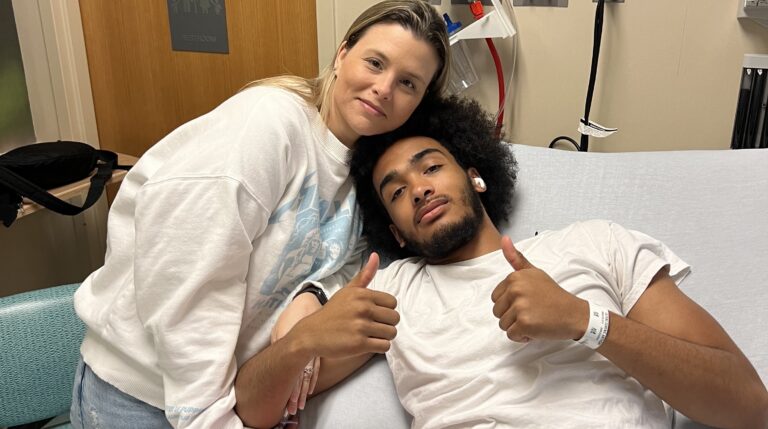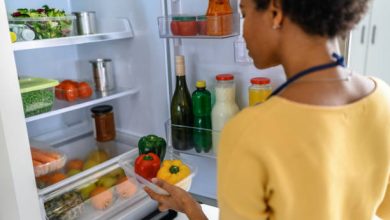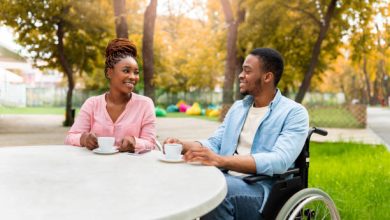I Was 7 When I Learned to Infuse


When Brianna gave birth to her son Domenic, she never expected to hear the words “hemophilia B.” With no family history of the condition, the diagnosis came as a complete shock.
As a young mother, Brianna had to educate herself quickly.
“When I had him, they ended up having to transfer him to the NICU over at CHOP’s [Children’s Hospital of Philadelphia]. I remember he stayed there, and that’s when he got the official diagnosis of hemophilia B. So, moving on from that, it was a huge shock…I had a lot of learning to do,” Brianna tells BlackDoctor. “I had no idea what hemophilia was, I had no idea how to manage it, treat it, or navigate through it at all. So I had to do a lot of research and meeting with a lot of his medical team, and just coming to an understanding of what I had to do to give him the best life possible and safest life possible.”
Early Challenges
As a baby, Domenic experienced frequent spontaneous bleeds.
“We spent a lot of time at the hospital for these bleeds. There were times he had to be admitted, there were times that he would just be taken there and have a scan or X-rays done, and then we would come home. He would be given his medicine at the time,” Brianna explains.
Once the spontaneous bleeds became more recurring, doctors decided to put Domenic on more prophylactic treatment.
“He was on that medicine twice a week for a long period of time,” Brianna shares.
Domenic, a martial arts enthusiast, wore a helmet as a toddler and continued to do so until the first or second grade to protect his head during recess.
“Every time he wasn’t wearing his helmet and he hit his head, that was an automatic trip to the ER,” Brianna says.
RELATED: Quiz: What Do You Know About Exercise and Hemophilia?
Building Independence
One of Brianna’s priorities was making sure Domenic learned to manage his condition himself.
“It was important because, in my opinion, he needed to know how to do it,” she says. “I wasn’t always around, and I needed that reassurance that if something happened, he was able to do his medicine.”
Domenic’s sense of independence first began to grow at summer camp.
“Having hemophilia growing up, my mom did a really good job of making sure that I would be able to take care of myself when I got to these situations, like college,” Domenic tells BlackDoctor.
Doemnic, who is currently a student at Montclair State University, credits camp with teaching him how to self-infuse.
“I was there for a week. So all I had was the counselors. And they know general information about your medical disorder or whatever your disorder may be, but they’re not experts on hemophilia. So it was still up to me to a certain extent to vocalize the issues that I had, make sure that I and the counselors were on the same page,” Domenic adds.
Being around a supportive community helped him stick to a routine and keep track of his medication.
“There was a counselor who had hemophilia, and our treatment days fell on the same day. And when he went to do his treatment, I was going with him. And he saw that I wasn’t able to self-infuse, he decided that he would take the time to walk me through it…I feel like that’s really helped give me independence. But I wouldn’t be able to take advantage of those opportunities at the end of the day if my mom didn’t give me the knowledge that I needed and started at home,” Domenic shares.

Navigating College Life
When Domenic left for college, Brianna had to learn to let go.
“Sending him to college, I was a mess,” Brianna admits. “I was constantly worried. And I think in the beginning, I was on his butt a little bit, like, ‘Hey, Dom, did you order your medicine? Did you do your medicine?’ And then it comes to a point where he’s a 21-year-old kid now. And it comes to a point when you’re going to college, you need to grow up. So…I had to give him that grace where he had to own up to it, and he had to do what he needed to do to be an adult, to take care of himself,” Brianna says.
When Domenic began college, he quickly encountered a new set of challenges.
“When I was at home, my mom was always there to make sure I did my medicine. At college, my priorities weren’t in the right place,” he says. “If my infusion day was Monday and I had class, I didn’t want to get up early. After class, friends wanted to go places, so I’d rather go with them than go back to my dorm. My priorities just weren’t in the right place.”
A New Chapter: Gene Therapy
Everything changed when Domenic became eligible for gene therapy.
“When we first got the initial phone call, it was from one of the nurse practitioners on his medical team. It was an emotional phone call because I remember his first appointment with his physician when he was a baby. I remember her telling me that when Dom is about 18 years old, there’s going to be huge changes in the medical world for hemophilia B,” Brianna recalls.
That conversation lingered in the back of Brianna’s mind, as she thought, “There’s hope — maybe this isn’t something he’ll have to live with forever.”
“Watching him grow up, it was never easy seeing him go through the bleeds, it was never easy seeing him get stuck with the needle, or us sticking him with a needle, or him having to stick himself with a needle for those infusions. That was never easy. So getting that phone call and being told that this was an option for him, like I said, it was emotional. I probably cried on the phone, and it was just…a breath of fresh air. It was something that I was ready for, for him,” Brianna adds.
Hearing the news marked a turning point in Domenic’s life.
“When my mom told me about the gene therapy, I was really just shocked. I was aware of what the nurse said to my mom when I was born. Around 18 years old, my mom let me know about that. So that was pretty cool, a full-circle moment,” Domenic says. “But in the moment, I was really just shocked because when I was infusing once a week, I thought that was pretty much the ceiling for my treatment. I thought it was going to be like that for the majority of my life. And then finding out about gene therapy, a treatment where I wouldn’t have to infuse at all… hearing about that at such a young age… I wasn’t expecting that at all.”
The results have been dramatic.
“Since having gene therapy, I haven’t had any bleeds,” Domenic says. “I don’t feel the need to tell everyone about my condition anymore. It gives me the freedom to just live my life without always worrying.”
Brianna echoes that sense of relief: “I’ll never fully stop worrying, but now there’s this buffer—this extra layer of protection. It’s given me reassurance that I didn’t have before.”

Looking Ahead
Now a film student, Domenic hopes to use his creativity to raise awareness about hemophilia B.
“One of my biggest goals is to produce a short film about hemophilia,” he explains. “But I don’t want people to watch it and feel bad for patients. At the end of the day, we’re just regular people. I want to educate people so that when they meet someone with hemophilia, they understand—it’s not something to be ashamed of, and it doesn’t stop you from living your life.”
Brianna has her own advice for parents just beginning this journey: “You’re not alone. Use the resources out there—medical teams, social workers, camps. Educate yourself and your child. Advocate. And always remember, there are others walking this road with you.”




